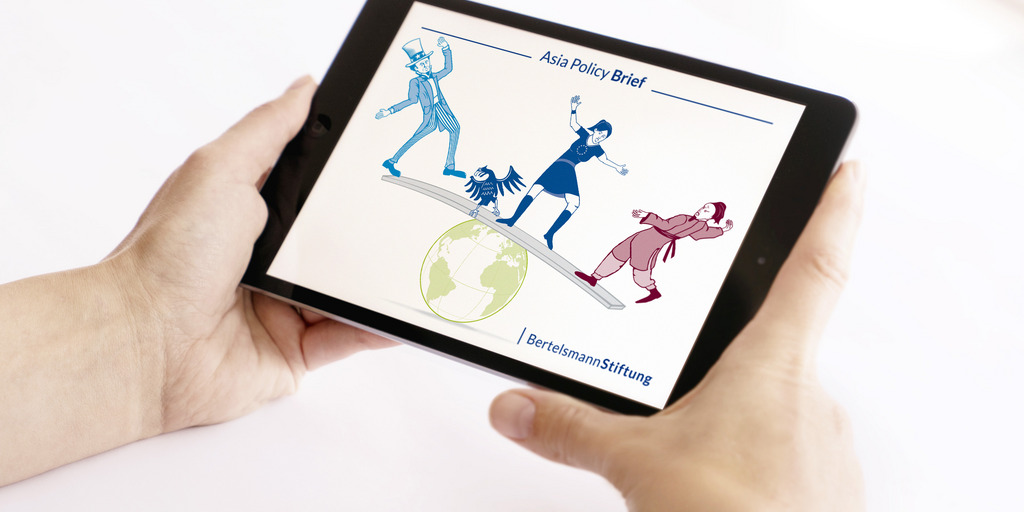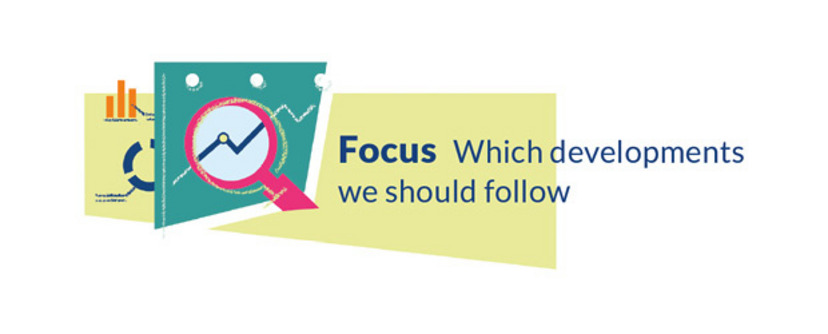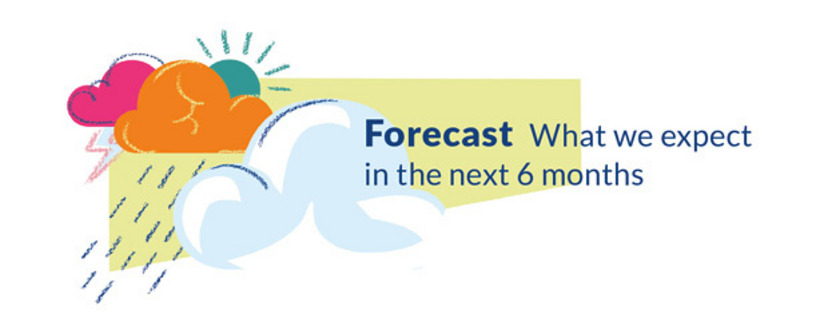Where would Germany stand if forced to choose sides in an open conflict between the US and China? This was a question Bertelsmann Stiftung discussed in spring 2017 with groups of decision makers from German and European politics, business and think-tanks. Donald Trump had just been inaugurated and it was easy to imagine how the US and China might steer into a confrontation, be it political, economic, military or a mix of all.
Working through various scenarios left participants alarmed as much as frustrated. Obviously, any movement in Sino-American relations will also impact Europe. However, there is little that Europe can do to influence the relationship between the world's two most powerful nations, and it cannot rely on being able to maintain strategic neutrality towards both sides. While political decision makers tended to stick to the transatlantic alliance, business representatives felt a stronger pull towards China with its still high economic growth. And while all agreed on a need for greater European unity, few were willing to put a bet on it. If push comes to shove, will leaders in European capitals be able to agree on a common position? Or will Europe get stuck in the middle between the two superpowers?
A year later, the course of events has shown that - unfortunately - these questions were not a vain intellectual exercise. The US and China are currently gearing up for what could (or could not - who knows, these days?) escalate into a global trade war, in which economically everyone would lose, even though some may claim political victories.
Nevertheless, from a European perspective, the situation looks grim, but not hopeless. For many, this past year of looming crisis has been a wake-up call. Across the board, leaders in politics and business have embarked on a process of reconsidering positions in a rapidly changing global environment. While it is currently the US that has its finger on the trigger of disrupting the global order, China is driving the more fundamental long-term changes. And unlike Washington, Beijing has recently sent clear signals about its plans for the coming years.
China has used every stage at its disposal to display its growing global ambitions, be it at the 19. Party Congress in late 2017, the National People's Congress in March 2018, the Belt and Road Summit, the World Internet Conference or most recently the Boao Forum. Under Xi Jinping, China finally appears to feel self-confident enough to be a key player in re-defining spheres of geopolitical influence and the rules of global governance as well as becoming a world leader in strategic industries and technologies.
Many in the West see this as an open challenge, made possible sooner than expected by the global power vacuum or confusion that is the Trump administration. In rhetoric, China maintains its dedication to a multilateral world order, continued reform and opening up of its markets and a level playing field for businesses. But many of its actions now point in a different direction, as documented by numerous reports, such as from the European Chamber of Commerce, various think-tanks and international media. China now seems to be putting a strong bet on its ability to set its own standards, both economically and politically.
Surely, China's outside projections may look more impressive than many of its internal realities. After all, China's domestic challenges remain enormous, be they economic, social, environmental or even political. Nevertheless, Germany and other European countries now acknowledge that a core belief about the direction in which China is moving can no longer be upheld: China seems to have left the course towards more openness, market oriented reforms and eventually maybe even some kind of political renewal. (While it may seem absurd today that this was once expected, let's not forget that until a few years ago, it was mainstream thinking even in Chinese policy circles. Xi Jinping's new era never was - or is - China's only option.).
Instead of waiting for eventual convergence, German policy makers are now gearing up for what some have begun to call a "competition of systems". The term may be overblown. After all, China is not exporting a political system, but business opportunities and real-political options, many of which appear particularly attractive to populist or autocratic leaders. But the challenge is obvious: Europe will have to find a way to balance China's influence.
Balancing China does not at all mean containing China, as some in Beijing fear and claim. China cannot and should not be contained. Building a strong partnership with China and supporting the country's increasing integration into the global system - both economically and politically - remains the primary objective. But Europe has a strong interest in fighting against the erosion of open markets, a level playing field for businesses and a multilateral, rules-based global order. Without significant counter weight in the form of alliances, regulations and political or economic initiatives, it would be naïve to expect that Germany or other European countries could remain at eye-level with an increasingly assertive China. From a European perspective, balancing China must be an attempt to keep the playing field as level as possible, with China as one of its most important players.
German Chancellor Angela Merkel is reported to have named China's rising influence as the key challenge in global affairs for her final years in office. It will be a rough ride, with uncertain outcomes. But some contours how Germany and other European governments are trying to balance China are already emerging. Three areas that will be at the centre of attention are Chinese investments, China's cyber security policies and the Belt and Road Initiative. In any of these areas, the time to come up with reasonable policies and agreements is limited.









